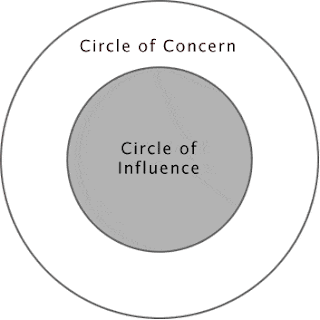Introduction
This post is not about politics. As I’ve explained before in these pages, I almost never discuss politics, with anybody. It’s pointless. Either you sit around agreeing with one another, in which case the dialogue inevitably drifts toward one-upmanship around who’s more knowledgeable, or you disagree, in which case you feel attacked, your brain goes into limbic override, and you lament even knowing such an ignoramus, much less having to talk to one.
This post is about how to survive this week’s election, regardless of whom you hoped would win. It’s a plea to locate your better mindset and hang on to it for dear life. (If you are not living in the United States, your elections and overall life situation may vary considerably from mine, in which case this post may not have much value to you … but I suppose you could read it anyway if you have Americans in your life.)
Why now?
I am sitting down to write this right now, on the afternoon of Election Day, because I don’t yet have the foggiest idea how the election is going. I am not the type to be glued to the news, riding a roller coaster of emotion as this or that state topples to this or that candidate. I never doomscroll, and especially not today. Thus, this is the perfect time, while my mind is still clear, to try to make some points about the survivability of any outcome, before I run the real risk of having my brain completely saturated in cortisol, and trying to think through the dense fog—actually, smog—which will make self-soothing very difficult later.
Since I am posting this essay ahead of the election returns, you and I will have something topical to read that dates from the Before Times, when it was still possible to take a deep breath and try to reassure ourselves that life will continue to be okay. Naturally, if my preferred candidate wins, and I don’t need to reread this, that would be wonderful. Otherwise, at least I will have something to cling to: the knowledge that a day ago, a week ago, or whenever ago, it was still possible to keep my chin up. And it still is.
What is at stake?
It’s tempting to believe that this election is a way to assess the state of America’s soul. If our strong, honest, virtuous candidate wins, the feeling goes, then we can conclude that our country is in good shape, that we’re still a good people, that the United States still deserves to be a world leader. On the other hand, if the evil, wicked, soulless candidate wins, it’s because America has fallen like Rome, and our people have lost their way, and we might as well be thrown to the wolves. And yet in reality, this is such a close race, it will be decided by tiny fractions of a percent of votes in this or that state, and the bizarre electoral college system, and possibly even by hanging chads or whatever the 2024 equivalent of that is. Whatever happens today (or however long this election takes to be decided), no conclusion can really be drawn about Americans as a whole, unless there’s some massive wave of epiphany that fundamentally alters millions of us overnight. We’ll be the same people next week as we were last week.
To summarize: our national character, I am arguing, is not at stake. Another thing that isn’t at stake is our fundamental quality of life and our liberty in this country. I gather that I may have just pissed you off by asserting this, but I will stand by it, flying in the face of the giant campaigning machines that have been beating us over the head with the fact that nothing less than democracy in America hangs in the balance of this election. I think that’s overstated. Whatever ideals this country was built on, however the Constitution does or doesn’t protect us, our government has a lot of complicated machinery in it, with a bias towards gridlock. There are checks and balances, and the capacity for thunderous disagreements and long, hard, protracted fights before any change gets made, good or bad. Whether the two-party system is lame, or doomed, or fatally flawed, these two sides will not give up easily and are very good at stopping each other from gaining too much ground. Sure, we have seen very important changes in the last eight years, but they were not tectonic. The essence of our experience in this country will not change overnight.
You may beg to differ, you may call me a fool, all of that is fine (and is the reason I so seldom even approach the periphery of politics on this blog). But I think to ignore the differences between the U.S. and, say, Russia or North Korea or China is to be absurdly ungrateful for the strength and resilience of our country.
Crushing leaves
At one point during this century (I won’t be more specific because this is a non-partisan essay), a presidential election went the way I didn’t want it to, and I felt despondent. For the first time in my voting life, the outcome didn’t seem like it could really even be true. I went out for a late afternoon bike ride—my go-to activity for working through stress—and as I pedaled up Monterey Ave, I happened to run over a perfectly dry and crispy leaf. As I’ve blogged before, I love crushing leaves:
Make fun of me if you want—I just love this activity. This is the perfect time of year for it: the sidewalk and street are littered with leaves and on a warm afternoon they’re perfectly crisp and ready for crunching. The sound is almost identical to a cat eating a potato chip, which I’ve been lucky enough to witness. The wind blows the leaves into big piles I can ride through on my bike. I can even feel the crunching, as light as it is. My kids and I dance all over the sidewalk, vying for the perfect leaf. The kids fight occasionally, like two surfers claiming the same wave. Then there is a kind of larger leaf that isn’t crunchable, but rattles along the sidewalk when kicked, like a big weird crustacean.Out of nowhere, I had the realization that there was absolutely nothing our new president could do to deprive me of this simple pleasure. The U.S. government just doesn’t have that kind of power. (It is true that during China’s “Great Leap Forward” all kinds of dramatic things happened—for example, something like a billion sparrows were slaughtered—but at the end of the day America is still a hog-tied democracy, thank goodness.)
It was a lovely fall day and an abundance of leaves lined the shoulder of the road, and I began steering for them, crushing one after another, getting inordinate joy from the simplicity of this basic act that I was able to do both before and after the election. As my ride continued I began to catalog all the other pleasures available to me: good, clean air that I gulped greedily as I pounded the pedals; smooth roads twisting gracefully through the hills of Tilden Park; robust health; sunshine; a view of the Bay; a pretty sunset; the pleasure of descending swiftly toward home; the satisfaction of having a home to return to. None of this would be taken away just because my candidate lost.
Fun
So: where did that description of crushing leaves come from? It’s a blog post I did ages ago called, “In Defense of Fun.” Why does fun need to be defended? Because we get distracted, and maybe we get guilty, and maybe we’re too depressed to indulge in it, which is a shame. My own appreciation of fun was rekindled by my kids, and that’s what brought about that post. Today I looked back to that post in advance of possible heartbreak tomorrow morning (or whenever I face the music and learn the outcome of this election), to remind myself that it’s okay—in fact, it’s necessary—to seize our capacity to appreciate what we still have, whatever that is, and to enjoy it. We’re not required to be depressed and sullen and spend the next four years crying in our beer.
I’m not saying the solution to political turmoil is to just blow it off and have fun. I’m just taking advantage of having included a list, in my “Defense of Fun” post fifteen years ago, of my top 20 ways to have fun. I went through that list just now to determine how many of these activities will no longer be possible if this election goes the wrong way. Here is the list:
Surprise, surprise: none of these things will suddenly become impossible. Neither candidate promised, “If I am elected, America will no longer have to face the nightmare of people fixing their bikes, snapping photos, drinking beer, and people-watching. My administration will ban the crushing of leaves along with all BS pointless conversations among friends.”
Bigger picture
To be crystal clear: the point here isn’t fun per se. If my “in defense of” post had instead been about soulful connection with family, or the deep richness of decades-long friendships, or the satisfaction we get from improving our minds, or on basically anything that we should be glad for in our lives, we could look at that list instead. The point is, our post-election lives will only be miserable if we let them—if we decide this outcome precludes happiness, whether or not it actually changes the basic facts of our day-to-day lives (which it mostly doesn’t and won’t). Our connection with friends and family is only jeopardized if we blather on angrily or wretchedly about politics and they disagree with us. The United States of America tomorrow will be the same one it was yesterday, with the same dry leaves, the same slanting orange afternoon sun, the same smooth, twisty roads, and the same home to return to; your cat will still nuzzle her snout into the crook of your elbow and/or your dog will still whack your leg repeatedly as he wags his tail. Certainly there will be gradual policy changes based on having one political administration in place instead of another; the winners will have impacts on the country and the world during the time voters have given them. But you don’t need to decide in advance to be miserable about it.
Stay tuned
Keep an eye on albertnet, because I promise next week I’ll return to lighthearted, non-didactic, hopefully humorous prattle instead of this tedious, serious stuff. Maybe I’ll write about A.I…
—~—~—~—~—~—~—~—~—
Email me here. For
a complete index of albertnet posts, click here.
















